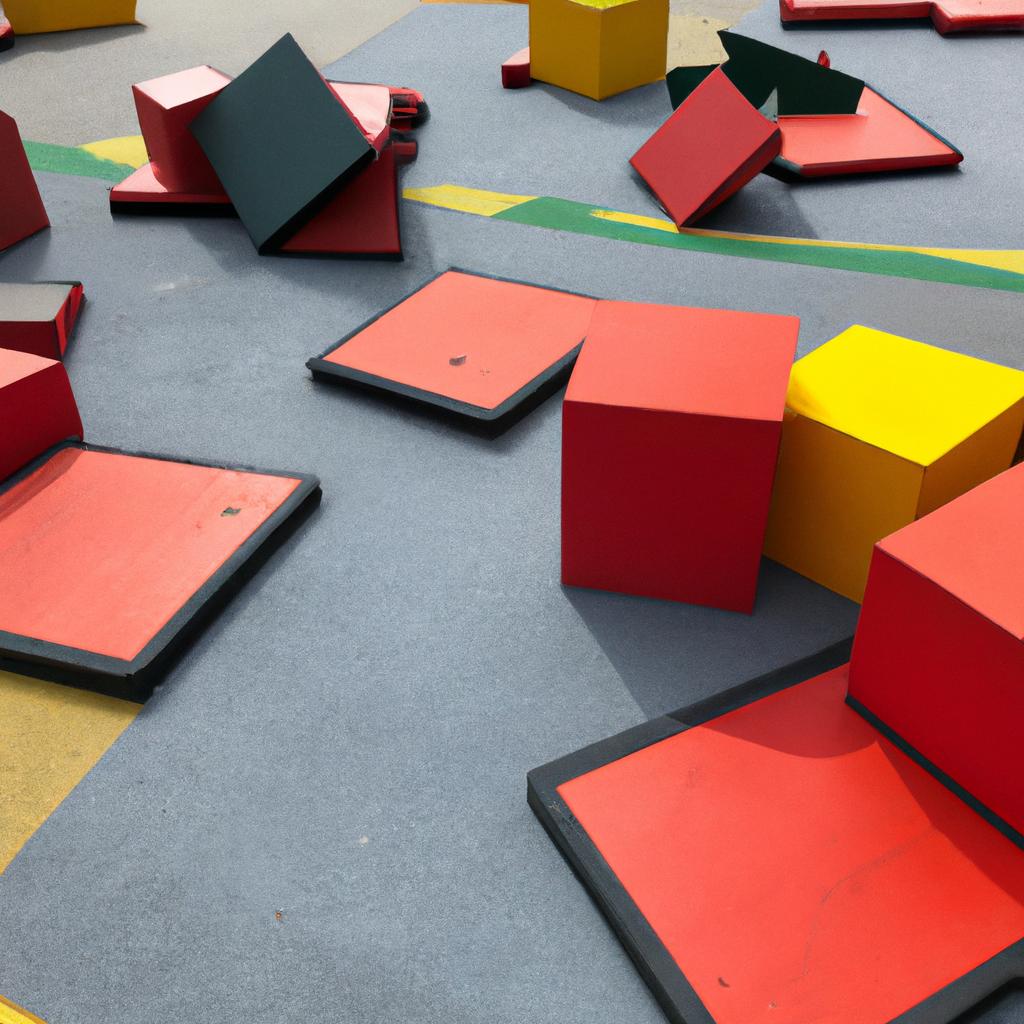**”Creative Obstacle Courses: Designing Fun and Challenging Fitness Games for Kids to Encourage Physical Activity”**
# Creative Obstacle Courses: Designing Fun and Challenging Fitness Games for Kids to Encourage Physical Activity
In an age where screens dominate children’s leisure time, fostering a love for physical activity is more important than ever. One innovative solution is the creation of creative obstacle courses that combine fun and fitness. These interactive setups not only encourage kids to be active but also develop their motor skills, coordination, and problem-solving abilities. This blog post will guide you through designing engaging obstacle courses, while also highlighting essential nutrition tips, exercise advice, and the health benefits of staying active.
## Designing Fun and Challenging Obstacle Courses
Creating an obstacle course can be as simple or complex as you like, depending on the age and skill level of the children involved. Here are some key elements to consider:
### Choose a Theme
Themes can significantly enhance the appeal of an obstacle course. Whether it’s a jungle adventure, a pirate treasure hunt, or an outer space mission, themes foster imagination and excitement. For example, a jungle-themed course might include “swinging vines” (hula hoops) and “mud pits” (pools of soft foam).
### Select Appropriate Equipment
Using everyday items around the house can make designing an obstacle course both cost-effective and fun. Here are some ideas:
– **Hula Hoops**: Great for jumping in and out.
– **Cones or Markers**: Perfect for weaving through.
– **Low Beams or Balance Boards**: Excellent for improving balance.
– **Jump Ropes**: Can be used for hopping or skipping challenges.
### Incorporate Variety
To keep kids engaged, incorporate a variety of challenges that test different skills. Combine running, jumping, crawling, and balancing to create a dynamic experience. For example, a course might include crawling under a table, jumping over a line of cones, and balancing on a beam.
## Nutrition Tips
Nutrition plays a crucial role in supporting the energy levels needed for physical activities. Here are some key tips to keep in mind:
### Encourage Healthy Snacks
Before engaging in physical activities, provide kids with nutritious snacks to fuel their bodies. Foods like bananas, yogurt, or a handful of nuts are excellent choices that provide energy without the sugar crash associated with sweets.
### Stay Hydrated
Hydration is essential, especially during vigorous play. Encourage kids to drink water before, during, and after their obstacle course challenges. Having a designated “water station” can remind them to stay hydrated.
### Focus on Post-Activity Meals
After a fun-filled day, replenish energy with balanced meals. Include proteins, whole grains, and a variety of colorful fruits and vegetables to support recovery and muscle growth.
## Exercise Advice
While obstacle courses are a great way to get kids moving, there are some exercise principles to keep in mind:
### Warm-Up and Cool Down
Before starting the obstacle course, engage the kids in a warm-up routine. Simple stretches and light aerobic activities prepare their bodies for movement and reduce the risk of injury. Similarly, a cool-down phase with gentle stretching can help their muscles recover.
### Vary the Difficulty
Adapt the courses to suit different skill levels. For younger kids, keep obstacles low to the ground and simple. For older children, increase the complexity and height of challenges to keep them engaged and motivated.
### Encourage Teamwork
Consider organizing the obstacle course into teams. This approach fosters collaboration, communication, and social skills as kids cheer each other on and work together to complete challenges.
## Health Benefits
Engaging in creative obstacle courses offers numerous health benefits for children:
### Physical Development
Obstacle courses promote gross motor skills, coordination, balance, and agility. These physical attributes are crucial for children as they grow and develop.
### Mental Health
Physical activity is linked to improved mood and reduced anxiety. The fun and excitement of an obstacle course can help boost self-esteem and confidence in children.
### Social Skills
Participating in obstacle courses encourages teamwork and communication skills. Kids learn to work together, support one another, and celebrate each other’s successes.
## Conclusion
Creative obstacle courses provide an excellent way to encourage physical activity among kids while fostering a variety of skills. By designing engaging themes, selecting appropriate equipment, and incorporating healthy nutrition and exercise practices, parents and educators can create an environment where children thrive both physically and mentally. Ultimately, these playful challenges not only promote fitness but also instill a lifelong love for movement and healthy living.















Post Comment